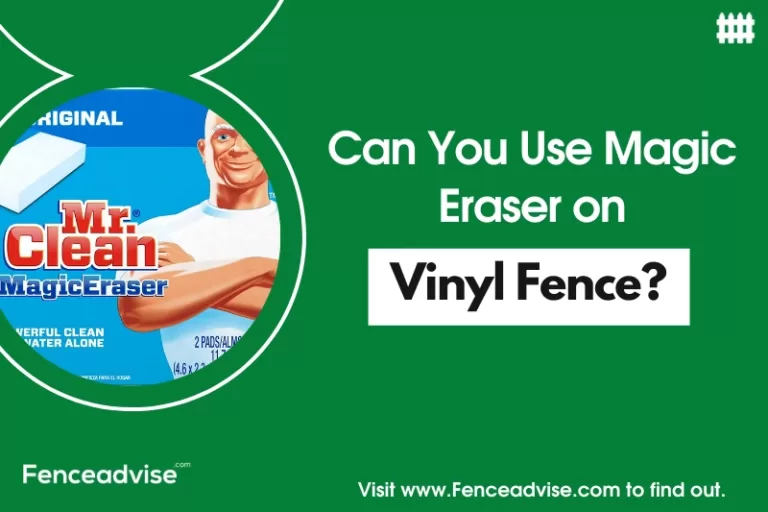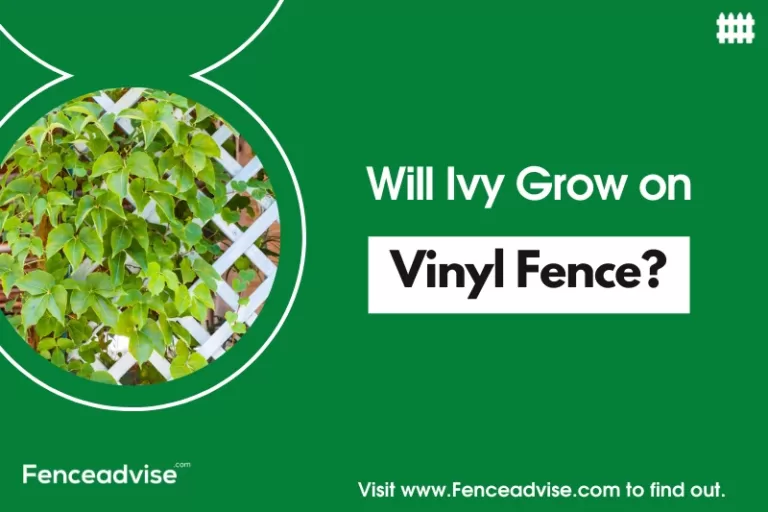We include products we think are useful for our readers. If you buy through links on this page, we may earn a small commission. Read our affiliate disclaimer here.
When it comes to fencing for dogs, there are a few options to choose from. Wood and vinyl fences are two of the most popular types. Each type of fence has its own benefits and drawbacks. Here is a closer look at each one:
Wood fences are a classic option for fencing dogs. They are sturdy and can last for many years with proper maintenance. Wood fences provide a natural environment and are aesthetically pleasing. However, they can be expensive to install and require regular upkeep.
Vinyl fences are durable and easy to clean, but may not be as attractive as wood fences. Ultimately, the best choice for your dog will depend on your individual needs and preferences.
Our Pick
Zippity Outdoor White Vinyl Portable Puppy Dog Fence
This free-standing white vinyl picket fence is not only versatile, but it is also perfect for a wide variety of settings. Whether you need to create a barrier for your pet in your home or want to take them on the go with you, this fence is perfect for doorways, entryways, and outside porches. Plus, it’s a great dog fencing option for RV camping!
Is Wood Or Vinyl Fence Better For Dogs?
There are pros and cons to both wood and vinyl fences when it comes to keeping dogs contained. Wood fences can easily be chewed, so they may not be the best option for aggressive chewers. Vinyl fences, on the other hand, maybe less attractive to dogs and can be quite noisy when dogs run into them.
Ultimately, the best option for a fence will depend on the specific dog and the home environment.
There are a lot of reasons why a wood fence is a great choice for dogs. For one, they provide a natural barrier that helps to keep dogs in (and other animals out).
Wood fences are also great for privacy and can help to create a sense of security for dogs. They’re a natural choice for homes with large yards and can be customized to fit any property.
There are a number of reasons vinyl fence is a popular choice for dog owners. Vinyl is a sturdy material that can stand up to a lot of wear and tear.
It’s also non-toxic and won’t harm your pet if he or she happens to chew on it. Vinyl fences are also very easy to keep clean, which is important if you have a dog that likes to run around in the dirt.
It is also a good choice for dog owners who live in a climate with severe weather conditions, as vinyl fencing does not corrode or rust in extreme weather.
What Type Of Fencing Is Best For Dogs?
Fencing for dogs is a very important investment, and it’s important to choose the right type of fencing for your pet. There are a few different types of fencing that are best for dogs. One is an electric fence, this type of fence gives your dog a shock if he or she crosses the boundary you have set.
Check our recommended pet fence
It is important to make sure that the shock is not too strong, or your dog could be injured. You will also need to make sure that your dog is trained properly on how to respond to the shock, or else he or she may become scared of the fence.
Wood fencing is the second most popular type of fencing for dogs. It is a more traditional option and is typically more expensive than electric fencing.
Another type of fencing that is good for dogs is a physical fence. This could be a traditional fence or something more creative, like chicken wire. The dog will have to learn to stay away from the fence, and he’ll eventually realize that he can’t cross it.
Fencing can be expensive, but it is definitely worth it if you have a large yard. It keeps your dog in but also keeps him safe from harm by other animals or humans. If you have a smaller yard, there are many other options for training your dog not to jump fences.
Read More:
- How to Remove Rails from Vinyl Fence?
- Can Invisible Fence Interfere with WiFi?
- What Colors Does Vinyl fence Comes in?
Are vinyl fences strong enough for dogs?
The short answer is yes – vinyl fences are more than capable of keeping dogs in or out, as long as they are installed properly.
There are a lot of reasons to consider vinyl fences for your property. They are affordable, easy to maintain, and come in a variety of colors and styles. But one of the biggest reasons people choose vinyl fences is because they are strong and durable.
Vinyl fences are made from PVC, which is a type of plastic. This makes them resistant to weathering and rusting, and also means that they will not rot or splinter.
Vinyl fences are also very resistant to damage from animals. Dogs and other pets will not be able to chew through them, and they will not leave scratches or marks on the surface.
If your dog or pet does get their paws on the fence, they will not be able to dig through it. This is an advantage over wooden fences, which can become damaged if your dog digs in them.
Can Dogs Damage Vinyl Fences?
Dogs are curious creatures and often times they will investigate anything that interests them. This can be a problem if your dog is constantly getting close to your vinyl fence. Dogs can cause a lot of damage to a vinyl fence by chewing on it and jumping on it.
They may also urinate or defecate on the fence, which will cause the vinyl to break down and discolor.
Dogs and vinyl fences can be a bad mix. So, if you have a dog, it is important to train them not to get too close to the fence. You can also install a vinyl fence that is specifically designed to keep dogs away.
Dogs and vinyl fences can be a bad mix. Dogs like to chew on things, and vinyl fences are a favorite target. Not only can this damage the fence it can also be dangerous for the dog.
You need to make sure you have a plan in place for keeping your fence – and your dog – safe and healthy.
Conclusion
Installing a fence for your dog is a great way to keep them safe and secure in your yard. There are a lot of different types of fences to choose from, but if you’re looking for the best option for your pet, wood or vinyl fencing is the way to go. These fences are durable and long-lasting, and they’ll keep your dog safe and happy.
At FenceAdvise, we pride ourselves on being the most reliable and trustworthy source of fencing information. Our articles are based on only the highest quality sources, including peer-reviewed studies, to ensure that our readers always have access to accurate information. Read more about our Editorial Guidelines, About Us.






